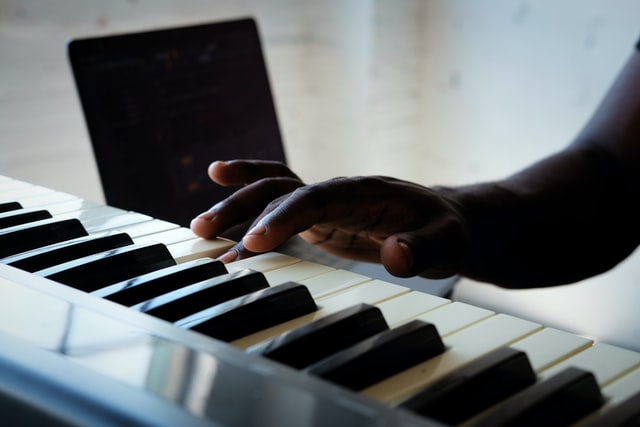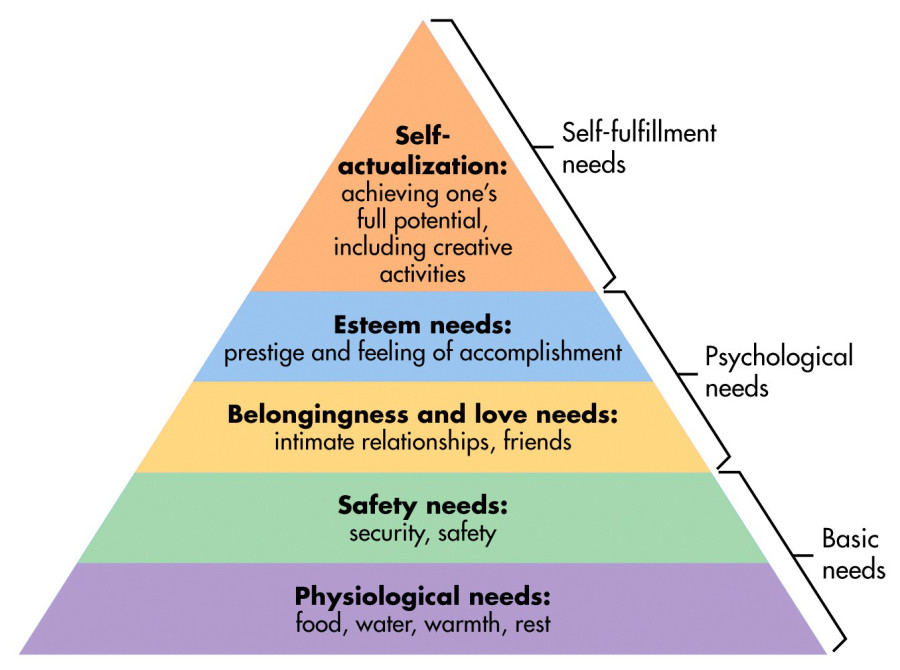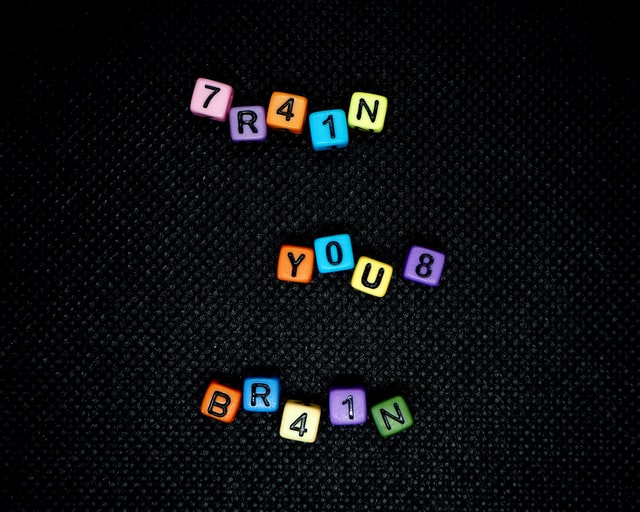Playing music and mental health are linked in ways you may never have realized. In the modern age, we’re starting to learn more about people, their mindset and the things that can help with depression, anxiety, and other mental health issues. Playing music and mental health is one of the areas that has been studied in some depth as people try to get to the bottom of the link between musicianship and mental health.
There are loads of ways in which music can help with your mental health, and the truth is that everyone experiences music differently.
In this guide, we’re looking at how piano and playing music can boost your mood, give you more purpose and improve many aspects of your life. We also get a little bit into the science behind this so that you can better understand exactly why this is happening. Think of this guide as your chance to understand playing music and mental health, and get the most out of your music lessons if you are struggling with depression, anxiety or another mental health issue.
Listening to Music and Mental Health
Though this article is focusing in on the benefits of playing music and mental health, it is a good idea to understand that listening to music has a profound impact. Even if you have no desire to play an instrument, introducing more music to your daily routines can be an amazing way to boost brain power and improve your mental health.
This is not some spiritual, new-age theory either. It is backed up by science.
In 2013, a study was carried out to compare participants listening to relaxing music vs others listening to rippling water sounds and some with no audio at all. Results suggested that music was the best out of all three of these types of auditory stimulation when it came to dealing with stress. The human stress response was still present in all of the control groups, but those who had music on recovered quicker, and their mood was better overall. A link between the music and the Autonomic Nervous System is thought to be the reason behind this.
There are plenty of other studies that show that music can be relaxing, but there are also other potential benefits. For example, some studies have shown that it can help with sleeping, something a huge number of people struggle with and that can contribute greatly to mental health problems.
This study compared control groups with and without music, and both the quality and amount of sleep they were getting. Those with music were found to have a better quality of sleep overall. There is no denying that a lack of sleep can be a huge contributor to stress and anxiety in day-to-day life.
Playing music and mental health is slightly different, as we explore below. However, the benefits of listening to music are likely to be more present if you are learning an instrument. You will be constantly listening to other performances, trying to learn new songs and even listening to your own playing.
In general, it is considered a good thing to link music and mental health.
So, why can’t I just listen to music? Why is playing music important for my mental health when benefits will come from just sitting down with my headphones on?
Playing Music and Mental Health – How It Helps
We did warn that there would be a little bit of science in this guide. Don’t worry, we’re not going to go overboard.
You have probably heard of “Maslow’s Hierarchy of Needs”. This is a theory that is in thousands of psychology textbooks, which discusses a model of human needs. The things we all need to achieve in our life in order to thrive and feel good about ourselves. The needs are physiological, safety, love and belonging, esteem, and self-actualization.
This graph can help you to fully understand what is needed for humans. The basic needs such as food and water, security and a safe place to live and rest obviously come first, but above this, belongingness, esteem needs and self-actualization are vital. These areas can all be helped by music.
Confidence (Self-actualization)
Playing an instrument and confidence are linked, whether we like it or not. It takes confidence to get up on stage and play in front of others. We aren’t suggesting that you put yourself under that much scrutiny to start with, and there is an element of building confidence that is required before you reach this stage.
Confidence comes from a sense of agency for many people. Of being in control, and this can be built up with achievements. Keep an accomplishments list, so that you can keep track of the small “wins” on the way to becoming an established piano player.
Learning how to play the piano may have been a lifelong goal, and something that people can carry out within their own home. Following our academy means that you can learn the basics of how to play the piano without having to meet anyone in person.
For someone who struggles with social anxieties, this can be a big stumbling block. You won’t be likely to sign up for piano lessons in-person if you are worried about the social aspect of doing so.
The fact that the Pianu academy is broken into small, digestible chunks of information means that you can learn alone and that you can gradually tick off the achievements. One at a time should improve how you feel about yourself.
Esteem Needs
Eventually, new skills can lead to a significant boost in self-esteem. Whether we show other people what we are doing or not.
The skills we have, once we realize and consider them, are something humans feel good about. You know that sense of accomplishment after finishing an exam, dragging yourself to the gym for a workout, or even building a piece of flat-pack furniture. The more we can achieve, the better we tend to feel. This is a part of the “esteem” need within Maslow’s hierarchy.
This esteem can also be built up with the help of others, too. When you reach the stage where you are happy to show other people, even if it is family members, the fact that they are impressed with what you are doing will almost always lead to feeling better about yourself. It’s nice to get positive feedback, as long as it is genuine.
The Social Side to Music and Mental Health
“Belongingness” is this particular benefit if we are to tie it back to Maslow’s hierarchy of needs.
Without the psychology jargon, this is just the social side of music. Something that we can all get a lot out of. Music is almost inherently a social activity. People attend gigs together, learn together and play together in bands. Music can be a way to bond with others and it is almost a sure-fire way to meet people, if this is what you want to get out of it.
For some, the thought of meeting new people will make them very anxious, but it is advisable to overcome that anxiety and try to make valuable connections and friends. It is essential for our mental health. So how can you do this with music?
- Start attending open-mic nights (if you are confident enough). These are events where people can get up and perform if they wish to, and they don’t even have to have expressed an interest in playing live beforehand. This takes some of the pressure off, too. If you turn up and don’t want to play, just watch and enjoy the music. Performing live feels like a big step if you are just starting to play your instrument, don’t worry, there are other ways you can turn music into a social thing.
- Join group lessons. Depending on where you live, there may be music groups or group lessons you can attend. Whether you use this as your primary way of learning the instrument or not, they can be a great way to meet people you share interests with.
- Join a band or start a band. This is one of the more obvious social sides of music, but if you are looking for bonding and comradery it is definitely one of the best. You can form close friendships with people in this way, and bond over the music you all love. There are plenty of noticeboards and musician communities around the world you can use to meet other people. You might already know some musicians and want to form a band with them, too.
There are so many ways in which music can be social. In the future, you might meet people by playing shows together, working in recording studios, or even becoming a tutor for your neighborhood when your skills get to the point where you are confident doing so. Community music initiatives can be helpful for young people, too, so getting involved is a noble thing to do.
Music and Self-Expression
Self-expression is absolutely vital for your mental health, and as long as humans have been around, there has been some way of them expressing themselves, through painting, music or other art.
This helps not only to communicate with others and to feel empathy and relatedness, but it also helps you to vent and deal with whatever emotions you are going through.
Have you ever listened to one of those incredible “breakup” albums. There are so many of them. In fact, this list of 25 is a great place to start if you are looking for a slice of melancholy with your music.
Why are these great? Arguably, the expression that goes into them, and the raw human nature of putting your feelings into song is one of the reasons why people find albums with an emotional feeling to them so relatable. Some people get a huge amount out of listening to albums that they think “understand” the feelings they are going through. This is another form of social relation and ties in with a need for belongingness. Other people are going through similar emotions. Music and mental health are tied for almost everyone.
Breakups are one example, but the emotions conveyed in music cover the whole spectrum, from the joyous songs you might listen to at a wedding to the sad songs you would listen to at life’s harder times.
Making this music is a way to express yourself. This study discusses the fact that one of the most important aspects of music therapy is the chance for expression. It is a natural human trait to want to share how you are feeling, and musicians of all different skill levels are able to do so, from the three-chord punk songs that express anger, to beautiful piano concertos.
A Chemical Reaction – Music and Mental Health
Did you know that it has been shown that music can cause up to 9% more dopamine to be released within the brain.
Dopamine is sort of like a natural drug that our brains can make, and it can be triggered by all sorts of things from being in love to eating a bar of chocolate. Now, it has been shown to be triggered by music too.
Researchers from McGill University in Montreal performed the tests and volunteers had up to 9% more dopamine in their system when listening to music that they liked. It makes sense, really. Naturally, though we don’t know exactly how music benefits us, we do know that people have always loved listening to music for as long as we’ve been able to record in history books!
There is a quote in this article about the study from a prominent music psychologist, Dr Vicky Williamson who is based within Goldsmiths College, University of London
“This paper shows that music is inextricably linked with our deepest reward systems.”
Even your brain and body want you to make, listen to, and enjoy music.
Helping Your Brain Function
One source of depression and low mood, particularly among older people in the population, is the fact that brains can start to slow down and struggle to keep information retained. Getting older is a difficult process for people to deal with, but a lot of people can get comfort from music. Comfort isn’t all that playing an instrument can offer, though.
Studies have shown that playing or learning an instrument when older helps with the symptoms and signs of Alzheimer’s disease and dementia.
A study that took place with 157 sets of twins showed that those who play music might reduce the chance of developing Alzheimer’s by up to 1/3rd. That is a significant portion of those who might be susceptible to the disease.
There is also anecdotal evidence of a link between those with dementia and recognizing music that was important to them in their youth, with care homes often using music sessions and even listening parties as a way to help older people. It is thought that the link comes from how the brain stores its memories and information. Like your sense of smell, music is unique and triggers memories in a way that we can’t fully understand or explain.
People with dementia aren’t the only sector of society who find brain function is increased by music.
Have you ever heard of the Mozart effect? The video below explains it in some detail. Basically, the theory is that listening to classical music can make your IQ higher or improve other forms of brain function.
Listening to music has, in some cases, been shown to improve how people perform in tests such as IQ tests. It doesn’t have to be classical music, though. In fact, some of the studies have shown that you can listen to any type of music and experience similar benefits.
One step better than listening to music is playing music. In our recent guide to benefits of learning how to play the piano, we discussed some of the mental benefits including the fact that musicians tended to perform better in school tests.
Learning instruments can be difficult, but there is no denying the fact that this brain workout can have a huge amount of benefits to your mood, and also to your skill and ability. This means that in the future, you may become a smarter individual, and the confidence derived from this can also be beneficial.
The Magic of Music – Some Incredible Benefits and Studies
Harvard’s Health Watch has some incredible studies and stories about music.
The fact of the matter is that as a society, we don’t fully understand the benefits of music, but we do have studies to show that some of the benefits are far-reaching.
This is why we’ve called it the “magic of music”. Both playing and listening to music have been shown to have some mysterious benefits to health and mental health.
In a 2008 study, stroke patients were shown to make a speedier recovery if they listened to music as part of their rehabilitation. Teppo Särkämö, who carried out the study, summarized the findings; “We found that three months after the stroke, verbal memory improved from the first week post-stroke by 60 percent in music listeners,”
Studies have even been carried out regarding pain response, ad how music might impact it. There was a study in 2014 involving patients with fibromyalgia.
In the study, being allowed to listen to music (chosen by the patient) was shown to reduce pain and even increase the mobility of those suffering from the condition. Researchers theorized that the muscle pain is eased by the opioids that are released when listening to music.
In a similar study in 2013, people were given a drug that blocked opioid release, and these people didn’t enjoy their favorite music as much. This means that music, in all likelihood, is some sort of a pain reliever.
One of the incredible things about music and mental health is that we are learning more about it all the time. The two things are linked, but learning how can allow us to harness the power of music for your mental health.
Undeniably, people who suffer from mental health problems usually experience some profound benefits if they are able to start playing an instrument.
Next Steps – Go at Your Pace
So, you’ve decided that music can be a powerful tool in combatting mental health issues, and you want to take the next steps.
Our advice is to go steady. Don’t dive in headfirst and expect to be a world-class musician in weeks. Instead, take baby steps and embrace the little wins. If you can, buddy up with someone. Perhaps a friend who already plays an instrument? This way, showing them what you are up to can be a way to boost your confidence.
Using an online piano learning system and a course that has been organized for you already can be a good way to avoid having to have social contact if you are not ready for it.
Learn songs rather than theory to start with. Reward yourself by being able to play songs you love and show them to others. If life feels stressful enough right now, don’t set your ambitions too high. Going at your own pace and celebrating every bit of progress is a good way to ensure that you don’t give up on learning an instrument.
Our site focuses on the piano, and we believe this to be a good option for people suffering from mental health issues, as it is relatively simple to get started. An hour or two of practicing can lead to you being able to play songs, which is not something that you can say about guitar, which can involve a lot more difficult hand positions and building finger strength.
That said, any instrument can be beneficial for your mental health. Like everything to do with music, there is a lot of personal choices involved.
Used correctly, music can be a powerful tool. Whether listening to music, learning how to play your favorite songs, or building towards being in a band, the profound impact of music is almost universal.














